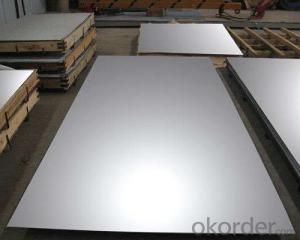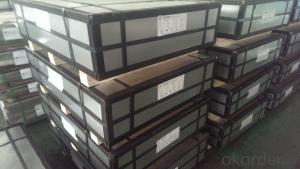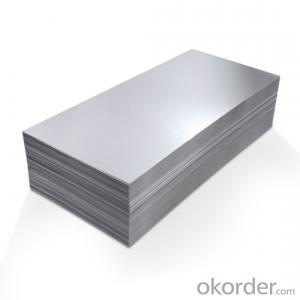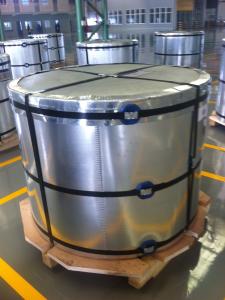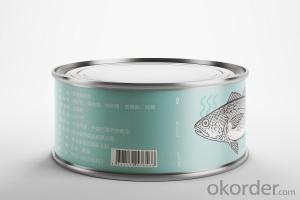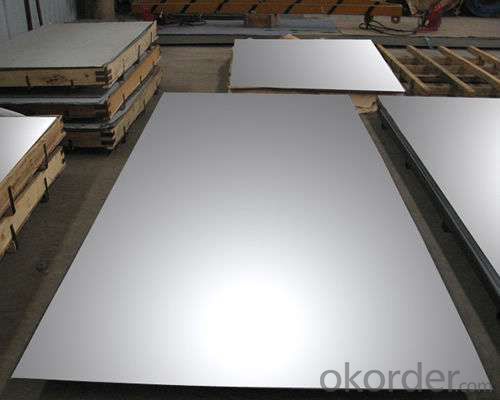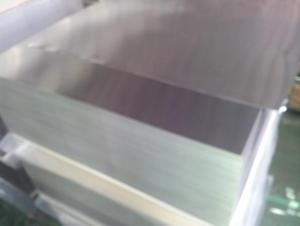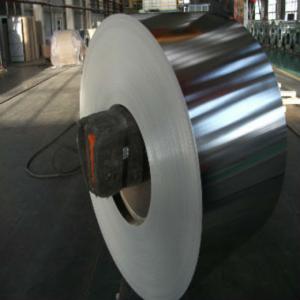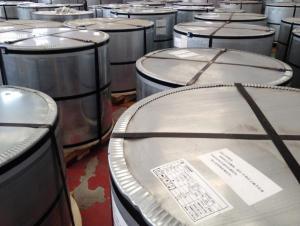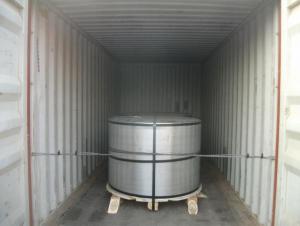CHAPA DE FLANDRES COM A MELHOR QUALIDADE E SERVIÇO
- Loading Port:
- China main port
- Payment Terms:
- TT OR LC
- Min Order Qty:
- 25 m.t.
- Supply Capability:
- 500000 m.t./month
OKorder Service Pledge
OKorder Financial Service
You Might Also Like
Specification
Descrição do Produto:
1. Estrutura de chapas de estanho eletrolíticas de alta qualidade para descrição do recipiente de embalagem de metal
A folha-de-flandres eletrolítica é uma folha de aço fina revestida por estanho. Ele tem um brilho metálico extremamente bonito, bem como excelentes propriedades de resistência à corrosão, capacidade de soldagem e capacidade de soldagem.
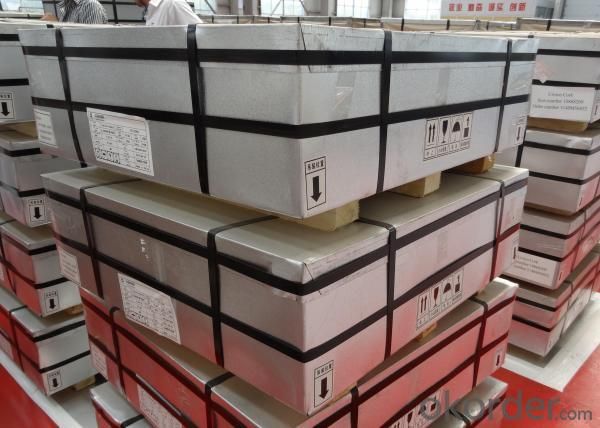
2. Principais características das placas de estanho eletrolíticas de alta qualidade para recipientes de embalagem de metal
A folha de flandres eletrolítica sem dúvida tem o lugar de honra como meio de embalagem especialmente para alimentos. Deve sua posição única à sua "estrutura em sanduíche de nove camadas", cada uma das quais contribui para sua eminência como material de embalagem. A base de aço da folha-de-flandres eletrolítica fornece a resistência e conformabilidade necessárias para a fabricação de latas. A camada de liga de estanho-ferro fornece a ligação entre o aço e a camada de estanho livre. A camada livre de estanho não é apenas responsável pelo atraente acabamento brilhante e facilidade de soldagem, mas também não é tóxica - um fator de vital importância nas embalagens de alimentos!
A folha de flandres também é amplamente utilizada para fazer todos os tipos de recipientes, como latas de alimentos, latas de bebidas e latas artísticas, latas de chá, latas de pintura, latas de embalagens de produtos químicos e latas de embalagens de alimentos secos, impressão de metal, etc. Suas aplicações não se limitam a recipientes; recentemente, a folha-de-flandres eletrolítica também tem sido usada para fazer peças de máquinas elétricas e mu itos outros produtos.
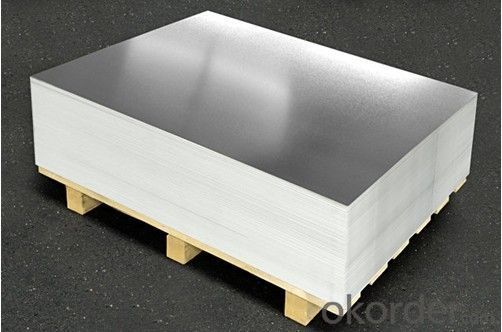
3.Especificações de chapa de flandres
Quantidade de pedido mínimo: 25 MT
Porto de carregamento: Porto principal da China
Capacidade anual: 400.000 MT
Condições de pagamento: TT ou LC
Padrão | ISO 11949-1995, GB/T2520-2000, JIS G3303, ASTM A623, BS EN 10202 |
Material | MR, SPCC |
Espessura | 0.15mm - 0.50mm |
Largura | 600mm - 1150mm |
Têmpera | T1-T5 |
Recozimento | BA & CA |
Diâmetro interno da bobina | 508mm |
Peso | Peso 6-10 toneladas / bobina 1 ~ 1,7 toneladas / pacote de folhas |
Passivação | 311 |
Óleo | DOS |
Acabamento de superfície | brilhante, pedra, fosco, prata |
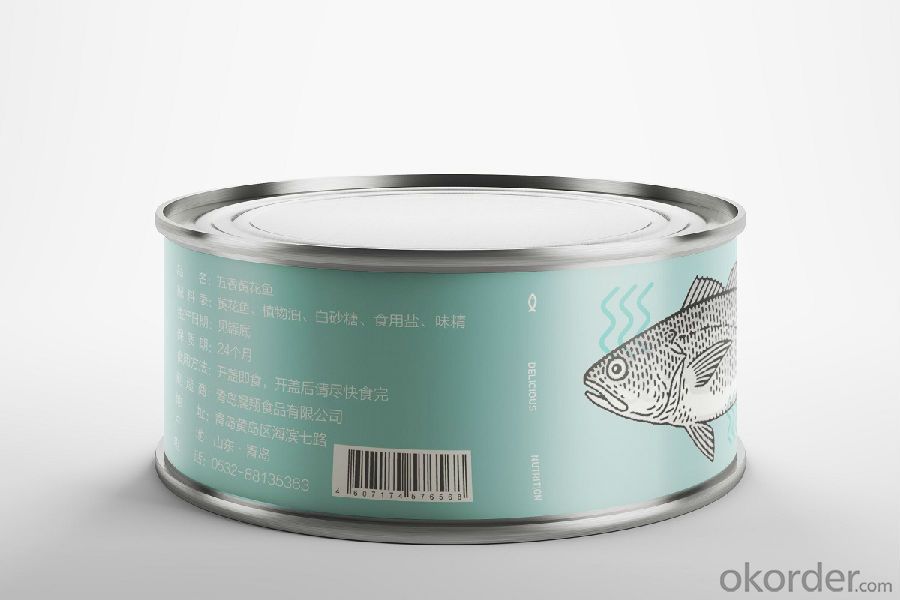
4. Apresentação de CNBM
Cooperação do Grupo Nacional de Materiais de Construção da China, como empresa estatal líder com 3 bilhões de dólares e 40.000 funcionários na China, a CNBM foi criada em 1984 sob a administração da comissão estatal de Supervisão e Administração de Ativos do Conselho de Estado, a revista Fortune estabeleceu a classificação Fortune Global 500 em seu site,
Existem mais de 300 fábricas e empresas vizinhas em nosso grupo; 2 empresas púbcas listadas em Hong Kong,11 empresas de capital aberto nas quais a CNBM possui um percentual significativo de ações.
O escopo de negócios da CNBM abrange desde a fabricação e vendas de materiais de construção até a pesquisa científica e design, engenharia, importação e comércio de exportação.
5. Introdução à Fábrica CNBM
Como um dos maiores fornecedores da indústria de folha-de-flandres, oferece aos clientes folha-de-flandres de primeira qualidade tanto em bobinas como em folhas. Com várias fábricas e produção totalmente integrada, a capacidade anual de folha-de-flandres é de 400.000 ,MT. Para garantir a alta qualidade da folha de flandres, a CNBM possui uma série completa de equipamentos. -
Máquinas de laminação reversa a frio: 14 conjuntos
- Laminadoras contínuas: 2 conjuntos - Fornos BA: 50
- linha CA: 1
- Linha de produção de folha de flandres: 2
- Folha de flandres reduzida SA & DA:
Disponível A CNBM também produz outros produtos de aço, como aço laminado a frio, aço estanhado,acço cromado por imersão a quente, aço com revestimento colorido e bobinas e folhas de aço sem estanho.
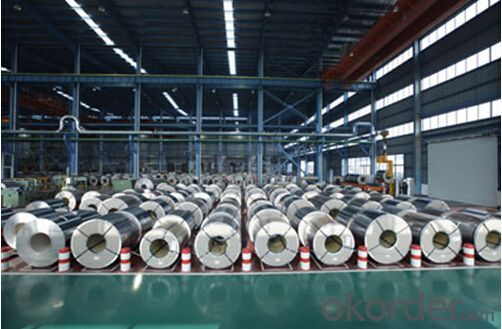
- Q: How does tinplate handle exposure to pressure and impact?
- Tinplate is known for its excellent strength and durability, making it capable of handling exposure to both pressure and impact effectively. It can withstand moderate levels of pressure without deformation or damage, and its rigid structure helps to absorb and distribute impact forces, minimizing the risk of denting or cracking. Overall, tinplate's resilience and robustness make it a reliable choice for applications where exposure to pressure and impact is expected.
- Q: What are the weight advantages of using tinplate?
- One of the weight advantages of using tinplate is its lightweight nature. Tinplate is made of thin sheets of steel coated with a layer of tin, which makes it lighter compared to other metal packaging materials. This lightweight feature allows for easier transportation, storage, and handling, reducing overall costs and increasing efficiency in various industries.
- Q: Can tinplate be used for electrical enclosures?
- Yes, tinplate can be used for electrical enclosures. Tinplate is a steel sheet coated with a thin layer of tin, providing corrosion resistance and durability. It can effectively protect electrical components from external elements and provide a safe enclosure.
- Q: What about tin cans?
- When the coating is damaged and the surrounding water, oxygen and other primary cell. Zinc is the anode oxidized tin iron is positive, do not participate in the reaction is protected by zinc than iron. Lively, active metal is negative.
- Q: How does tinplate contribute to the shelf life of canned products?
- Tinplate contributes to the shelf life of canned products by providing a protective barrier between the food and the metal can. This barrier prevents the food from coming into direct contact with the metal, reducing the risk of corrosion and contamination. Additionally, tinplate's resistance to moisture and oxygen helps to maintain the product's freshness and prevent spoilage over an extended period of time.
- Q: Can tinplate be used for packaging petrochemical products?
- Yes, tinplate can be used for packaging petrochemical products. Tinplate is a type of steel coated with a thin layer of tin, which provides excellent protection against corrosion and contamination. Its durability and resistance to chemical reactions make it suitable for safely containing and storing petrochemical products.
- Q: What are the different methods of storing tinplate packaging?
- There are several different methods of storing tinplate packaging, including stacking, shelving, hanging, palletizing, or using storage racks. The choice of method depends on factors such as the quantity of packaging, available space, ease of access, and the specific requirements of the products being stored.
- Q: What are the main challenges in the recycling of tinplate?
- One of the main challenges in the recycling of tinplate is the separation of tin coating from the steel base. The tin coating is typically applied to protect the steel from corrosion, but it hinders the recycling process as it needs to be removed. Another challenge is the presence of contaminants, such as paint or other coatings, which need to be removed before the recycling can take place. Additionally, the collection and sorting of tinplate can be challenging, as it is often mixed with other types of packaging materials. Overall, the main challenges revolve around the separation and purification processes required to ensure the quality of the recycled tinplate.
- Q: How does tinplate impact the ease of opening and closing packaging?
- Tinplate, due to its durability and flexibility, positively impacts the ease of opening and closing packaging. It provides a sturdy and secure enclosure, ensuring that the package remains intact during transportation and storage. Additionally, tinplate's smooth surface allows for effortless opening and closing, making it convenient for consumers to access the contents of the packaging.
- Q: How does tinplate compare to other packaging materials in terms of recyclability?
- Tinplate is highly recyclable and is considered one of the most environmentally friendly packaging materials available. It can be recycled infinitely without losing its properties, making it a preferred choice for sustainability-conscious industries. In comparison to other packaging materials such as plastic or glass, tinplate has a much higher recycling rate and is widely accepted in recycling programs worldwide. Its recyclability significantly reduces the environmental impact and contributes to a circular economy.
Send your message to us
CHAPA DE FLANDRES COM A MELHOR QUALIDADE E SERVIÇO
- Loading Port:
- China main port
- Payment Terms:
- TT OR LC
- Min Order Qty:
- 25 m.t.
- Supply Capability:
- 500000 m.t./month
OKorder Service Pledge
OKorder Financial Service
Similar products
Hot products
Hot Searches
Related keywords
